The Educational Health Care Plan (EHCP) needs to specify:
- the child’s SEN
- the outcomes sought for the child
- special educational provision required by the child
- any health care provision reasonably required by the child’s learning difficulties and disabilities which result in SEN
- any social care provision reasonably required by the child’s learning difficulties and disabilities which result in SEN
- for under 18s – any social care provision that must be made by the LA, and
- the plan may also specify other health care and social care provision reasonably required by the child.
The structure and form are as follows:
- Section A: views, interests and aspirations of the child and his parents
- Section B: child’s SEN
- Section C: child’s healthcare needs which relate to their SEN
- Section D: child’s social care needs which relate to their SEN
- Section E: the outcomes sought for the child
- Section F: the SEN provision required by the child
- Section G: any health care provision reasonably required by the learning difficulties or disabilities which result in the child having SEN
- Section H1: any social care provision which must be made for the child under Section 2 of the CSDPA 1970
- Section H2: any other social care provision reasonably required by the learning difficulties or disabilities which result in the child having SEN
- Section I: name of school and/or type of school or institution
- Section J: where provision to be secured by direct payment, the SEN and outcomes to be met by the direct payment, and
- Section K: advice and information in appendices.
NB For a child in Year 9 or beyond, an EHCP needs to include provision to assist the child/young person in preparation for adulthood/independent living.
An EHCP does not have a fixed format; each Local Authority can develop their own ‘style’, but the section above must be included.
Once the final EHCP has been issued, the Local Authority will then have the legal duty to secure the educational provision specified in the EHCP i.e responsible for ensuring that the provision is delivered.
EHCP Reviews
To be reviewed within the 12 month period starting on the date the Plan was made
and each subsequent 12 months.
Health Care Duties
If the Plan specifies health care provision, the responsible commissioning body must arrange the specified health care provision for the child or young person.
There is a duty on commissioning bodies to arrange for the health care provision specified in the Plan for the child.
Social Care Duties
Section H1 of the EHC Plan must specify all services assessed as being needed for a disabled child under section 2 of the CSDPA.
These services include:
- practicable assistance in the home
- provision or assistance in obtaining recreational and educational facilities at
home and outside the home - assistance in travelling to facilities
- adaptations to the home
- facilitating the taking of holidays
- provision of meals at home or elsewhere
- provision or assistance in obtaining a telephone and any special equipment
necessary - non-residential short breaks.
Drafting/Wording in an EHCP
All special educational needs, outcomes and provision must be specified in an EHC Plan. As such, the wording of special educational provision needs to be adequately specified and quantified.
Vague wording should be avoided. An example of ‘woolly’ wording (that would render the provision unenforceable in law is):
X ‘Access to a specialist teacher of the visually impaired, as deemed necessary’
Appropriate wording for an EHCP would be:
‘One hour per week of direct teaching from a Qualified Teacher of the Visually Impaired (QTVI). In addition to the weekly sessions, the QTVI will spend 2 hours per half term training and liaising with school staff on appropriate strategies that will be followed throughout the school day. The QTVI will additionally assess and monitor progress and produce a written report for each annual review.’





